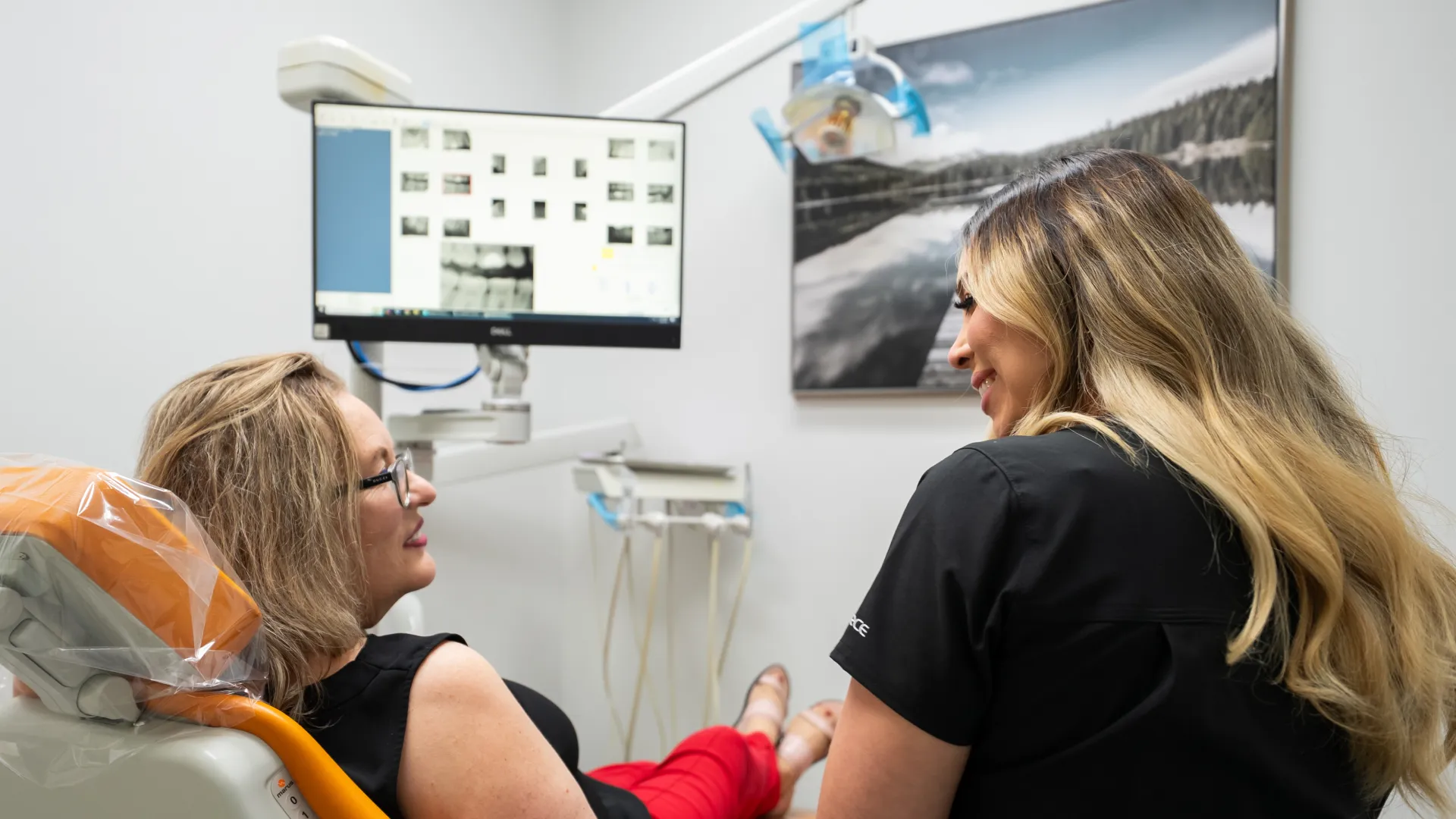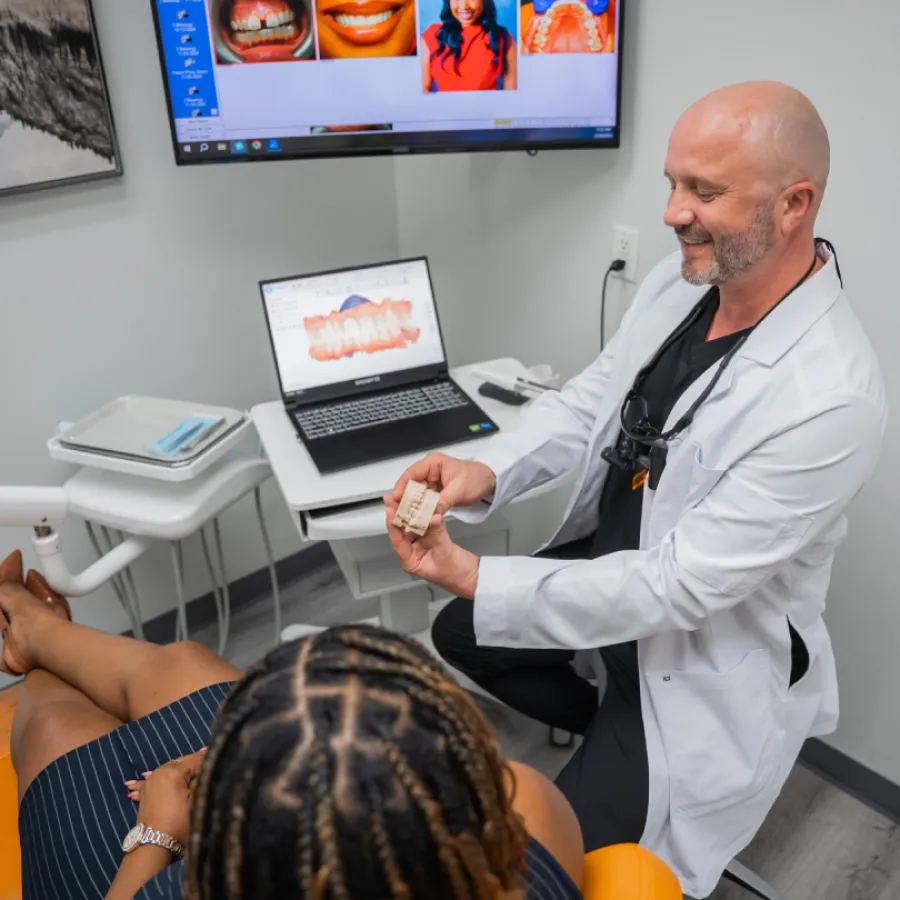
ORAL SURGERY
Get Relief With Surgery Procedures
Preserve Your Smile With Oral Surgery in Trophy Club
Our skilled dentists provide compassionate oral surgery in Trophy Club that can transform your dental health and restore your confidence. We don't want your oral surgery procedures to feel overwhelming, so we prioritize your comfort and well-being throughout every step of your treatment.
Choosing dental surgery offers multiple benefits including pain relief, improved oral function, and enhanced facial esthetics. Our precision and expertise have helped many patients with their oral surgery needs over the years. We can do the same for you!
If you're ready to take the first step toward a healthier, more comfortable smile, contact Trophy Smile Studio today for a consultation.

Access Many Types of Oral Surgery
Our team provides a wide range of oral surgery procedures designed to improve your oral health and smile. If you need a tooth extraction, your dentist will remove the damaged or problematic tooth with gentle care. Your dentist can also perform wisdom teeth removal, when needed, to relieve pain or overcrowding with the back teeth.
To restore your gum health, your dentist can perform a gum graft. This surgery will hide unsightly tooth roots, eliminate dental sensitivity, and help prevent tooth and bone loss. To improve the appearance of your gums, you can get cosmetic gum surgery.
To prepare your mouth for dental implants, we may recommend:
- Ridge Augmentation - Rebuild jaw structure after tooth loss.
- Bone Grafts - Strengthen your jaw so it can support implants.
- Sinus Lifts - Prepare your upper jaw for dental implant placement.

Look Forward to Expert Care
With our team's advanced surgical skills and experience, you won't have to visit an outside oral surgeon. It simplifies your care to keep it all in one place. As with any treatment, you'll find our team is happy to answer any questions and resolve any concerns.
To ensure your complete comfort, you'll have access to sedation options tailored to your needs and anxiety levels. Whether you prefer light sedation to feel relaxed or deeper sedation to doze through the procedure, we will help you feel calm and at ease.
We work closely with you to choose the best approach that makes your dental surgery as smooth and stress-free as possible.
If you think you may need oral surgery in Trophy Club, contact Trophy Smile Studio today.



